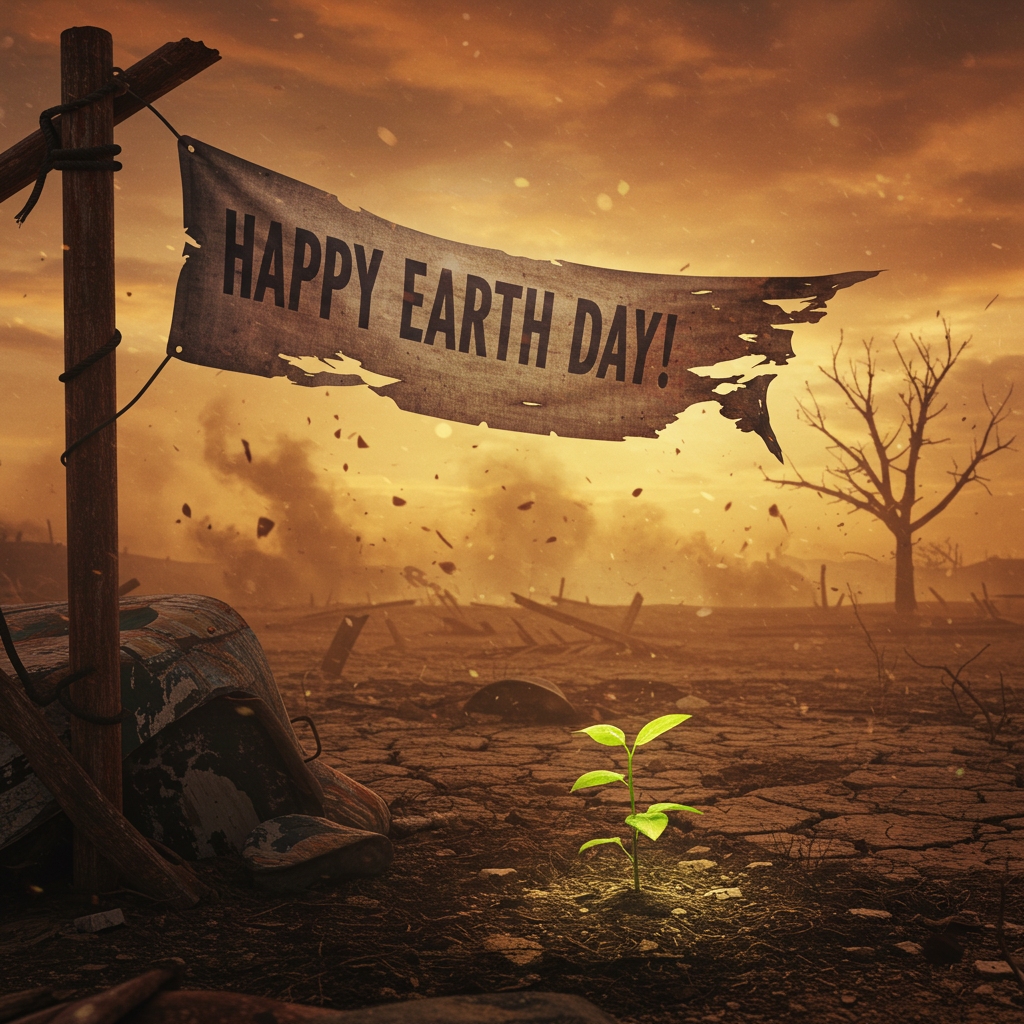The Shadow of Ecophobia
When Fear of Environmental Destruction Becomes Reality
Jump to the Article

While "ecophobia" comes closest to a direct phobia term, "eco-anxiety" and "climate anxiety" are more widely used to describe the fear and distress associated with environmental destruction and climate change. These terms acknowledge the significant psychological impact of the environmental crisis.
We live in an era defined by stark environmental realities. From the relentless march of climate change to the alarming decline in biodiversity, the planet is signaling distress. For many, these warnings evoke not just concern, but a deep-seated fear – a phenomenon increasingly being understood as ecophobia. While not yet a formally recognized phobia in the traditional psychological sense, the anxieties it encompasses are undeniably legitimate, rooted in the tangible and accelerating degradation of our natural world.
At its core, ecophobia describes a profound fear of environmental destruction, a dread that extends beyond simple worry into a realm of significant psychological distress. It's the visceral reaction to images of bleached coral reefs, the gnawing anxiety over increasingly frequent extreme weather events, and the despair that arises from witnessing the systematic dismantling of environmental safeguards.
Why is this fear so potent, so legitimate in our current context? The evidence is overwhelming and constantly mounting:
The Unfolding Crisis of Climate Change: The science is unequivocal. Rising global temperatures are fueling more intense hurricanes, prolonged droughts, devastating wildfires, and sea-level rise that threatens coastal communities. This isn't a distant threat; it's a present reality impacting lives and livelihoods globally. Ecophobia, in this context, is a rational response to the very real danger posed by a destabilizing climate. The fear of a future marked by scarcity, displacement, and ecological collapse is not irrational; it's an acknowledgment of the scientific consensus.
The Scars of Environmental Degradation: Beyond climate change, the planet is suffering from a multitude of wounds. Pollution chokes our air and water, plastic waste inundates our oceans, and deforestation erases vital ecosystems. These visible signs of environmental damage can trigger profound anxiety. Witnessing the destruction of natural beauty and the poisoning of life-sustaining resources fuels a legitimate fear for the health of the planet and, consequently, our own well-being.
The Creeping Advance of Desertification: The transformation of fertile land into barren desert has devastating consequences, leading to food insecurity, displacement, and increased conflict. For those who understand the intricate balance of ecosystems, the spread of desertification is a terrifying prospect, representing the loss of life-supporting environments and the potential for widespread human suffering. The fear it engenders is a direct response to the tangible loss of habitable land.
The Erosion of Environmental Protections: Perhaps one of the most direct triggers for ecophobia is the current trend in many parts of the world to weaken or dismantle environmental protections. The push for increased drilling and mining in previously protected areas, the rollback of endangered species acts, and the disregard for the health of waterways and forests send a clear message: short-term economic gains are being prioritized over long-term ecological stability. This perceived betrayal of environmental responsibility fuels a deep-seated fear that the very safeguards meant to protect our planet are being dismantled, leaving us vulnerable to further destruction.
The Interconnectedness of It All: Underlying these specific threats is the fundamental understanding of ecological interconnectedness. The loss of one species can trigger a cascade of negative effects throughout an ecosystem. The destruction of a forest can impact rainfall patterns hundreds of miles away. This interconnectedness amplifies the fear, as individuals recognize that the degradation in one area can have far-reaching and unpredictable consequences.
While the term "ecophobia" may not carry the clinical weight of other phobias, the fear it describes is undeniably real and deeply rooted in the observable decline of our planet. It is not a sign of weakness or irrationality, but rather a natural and understandable response to the escalating environmental crisis. Acknowledging the legitimacy of this fear is the first step towards channeling that anxiety into meaningful action, advocating for stronger environmental protections, and working towards a more sustainable future. Ignoring this growing sense of dread risks not only the health of our planet but also the psychological well-being of its inhabitants. The shadow of ecophobia serves as a stark reminder of the urgent need for collective responsibility and a renewed commitment to safeguarding the only home we have.
Sources
- "Planet sends distress signals: UN urges global early-warning systems as record numbers forced to flee climate disasters" - MalayMail. Accessed April 22, 2025.
- "Ecophobia: Keeping hope afloat" by Deena Kara Shaffer, Phd. Alive. Accessed April 22, 2025.
- "How Climate Change Is Causing World Hunger" - World Food Program USA. Accessed April 22, 2025.
- "Desertification: Definition, consequences and challenges" by Paul Collins. Climate Consulting Selectra. Accessed April 22, 2025.
- "Cascading extinctions and community collapse in model food webs" by Jennifer A Dunne and Richard J Williams. National Public Library of Medicine. Accessed April 22, 2025.
- "Deforestation affects rainfall, another reason to protect the rainforests" - Environmental News Network. Accessed April 22, 2025.
- "Understanding and Addressing Eco-Anxiety: A Call to Climate Action" - ecotree. Accessed April 22, 2025.
